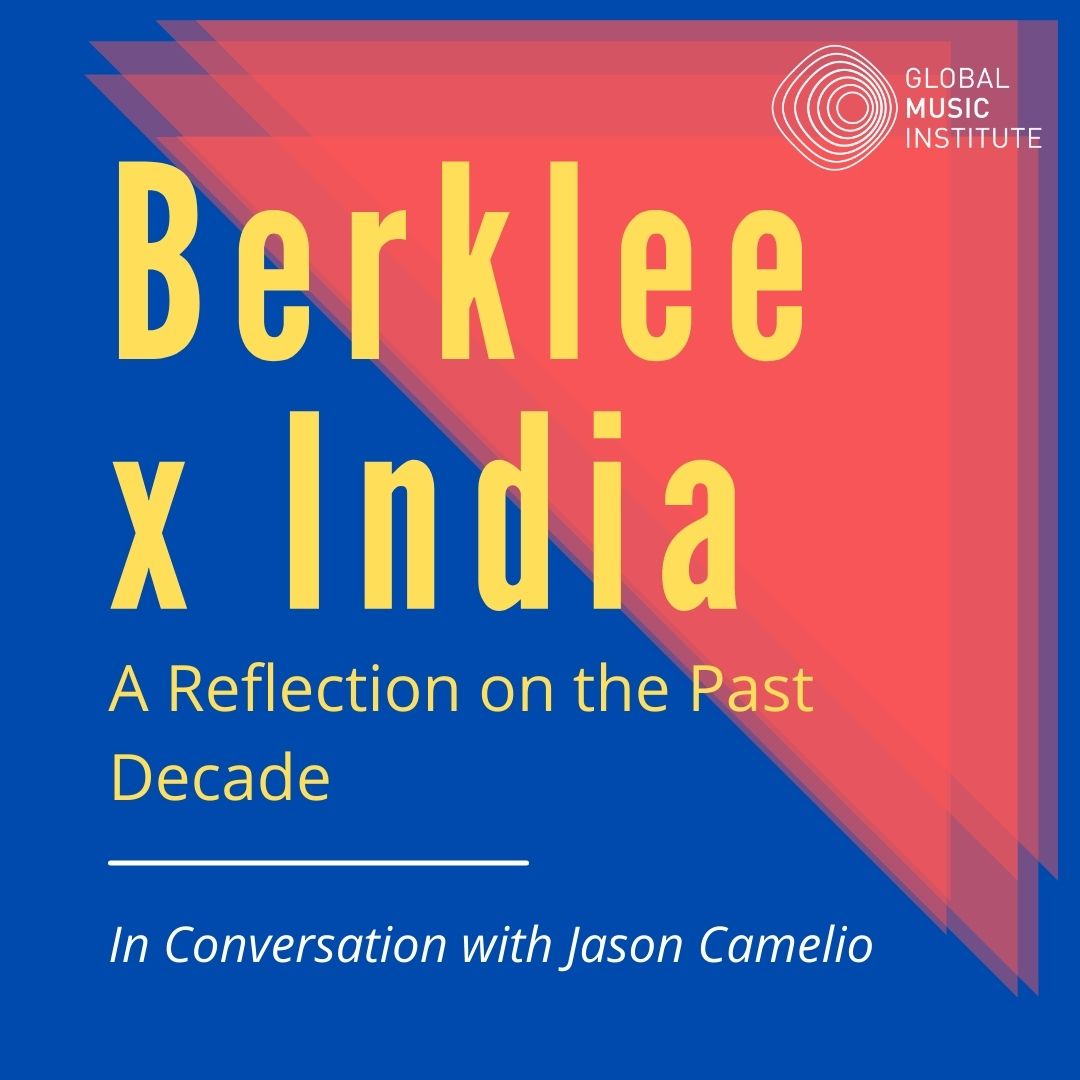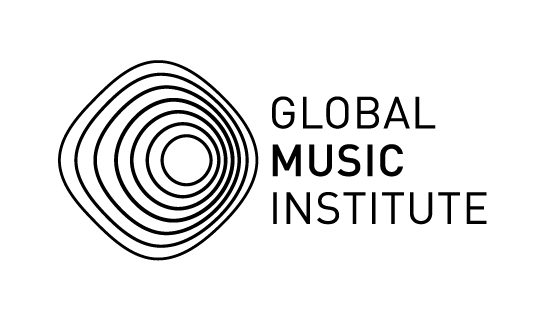
24 Sep Berklee x India: a reflection on the past decade
GMI shares a long-standing association with the prestigious Berklee College of Music (USA) and a global vision for music and arts education. The GMI-Berklee Track is a great opportunity for aspiring musicians as it enables them to begin their music education at GMI in India and complete an undergraduate degree at Berklee. Once accepted at Berklee, students can then transfer credits for agreed upon courses completed at GMI.
We got talking to Jason Camelio, Assistant Vice President for Global Initiatives at Berklee, to reflect on the last decade, changing face of Indian musicians at Berklee and the path ahead.
How far back does Berklee’s association with India go?
Berklee has been connected in some way to musicians in India for a few decades. We have had incredible musicians come to study for many years. But, it was at the time when Annette Philip, Sam Skau, Sharik Hasan, Aditya Balani and Tarun Balani and a few other exceptional students and alumni who were all at Berklee together that we began to take more focused steps to connect into the music education and entertainment marketplace in India, and to begin to make regular visits.
It was the Balani’s who presented Berklee with the first opportunity to take a student band on tour to a few locations across the country in 2009 that really ignited our engagement.
Have you seen the relationship evolve over the years? How so?
The relationships and engagement are continuing to evolve in many ways from connecting with the incredible artists and musical cultures of India that influence what we teach at Berklee to the educational relationships we have established and continue to explore to support the success of our students.
The Berklee India Exchange (BIE) led by alumna Annette Philip is a fantastic example of creating educational and cultural experiences for Berklee teachers, students and our global audience of learners. She and her team deliver programs and events that are open to all levels of students and listeners. It is a dynamic ecosystem.
The Global Music Institute (GMI) is a truly unique example of the evolution of Berklee’s relationship development with music education in India. Berklee alumni, who were already well-established artists, take what they have learned from their experience at Berklee and merge it with their learning experience in India to create a new type of institution to serve the next generation of aspiring musicians. That is GMI.
GMI creates access to current knowledge and skills building through their programs. The programs are part of a pathway to Berklee and beyond. Musicians from around the world go to GMI to teach as instructors — and have the opportunity themselves to learn. It is a truly special design. GMI is connected to the larger Berklee global community through the Berklee Global Academic Partnerships as well as the network each of the artist/educators brings with them.
Has there been a growth in the number of Berklee aspirants coming from India? What do you think has been a key factor behind that?
At this time, the number of students coming to Berklee from India is at a stable level. There is a high level of interest in coming to Berklee to study. But, there are also challenges. It is a big commitment to leave India to come to one of Berklee’s campuses (i.e. Boston; Valencia, Spain and now Berklee NYC).
While the numbers are stable, the level of talent, skill and creativity continues to grow.
Has Indian music / music from India been an influence in shaping the programs at Berklee?
Indian music has been an influence at Berklee for many years. We have had a number of Berklee faculty members who have engaged in deep study in Hindustani and Carnatic disciplines. The renowned artist Jamey Haddad is a fine example of this. And, students from around the world came to Berklee specifically to study with Jamey in order to access his knowledge and expertise — using his experience as a jumping off point for their own paths of discovery.
Additionally, the increase of Indian students studying at Berklee is influencing what we teach. One of the wonderful benefits of having a non-USA student population of more than 35% from over 102 countries is that each student contributes to the learning experience.
And, we clearly see that Indian music has had a significant influence on Jazz and popular music for decades. We can cite so many examples. What is changing is India’s musical influence on the current sounds and styles from heavy metal bands to modern Jazz to EDM and of course film music. The world is just beginning to scratch the surface. We all have so much to experience and learn.
Over the years, have you witnessed any difference in the skill and knowledge level of applicants coming from India?
We are seeing more musicians who have a wider musical vocabulary as they apply Berklee from India. This may be in part due to access to more information via YouTube and other platforms. It may also be due to the musicians having more access to one another to share what they are learning.
In the case of GMI students, we are seeing well-rounded students who are ready. They are getting access to the Berklee Core Music curriculum at GMI as well as opportunities to do the most important thing any musician can do…play music together live!
GMI alum Dhruv Goel at Berklee
How does music education in India compare to the global standard?
It is difficult to compare music education teaching methodologies and standards between different countries and cultures. The comparison may not even be relevant. What is the global standard? Who sets the standards? The ticket-buying / streaming-subscription-paying audience is not interested in whether that artist they love — that moves them — has met a global standard of music education.
Maybe a better question to consider is how ready is an aspiring student musician or how curious and motivated is a seasoned teacher to be open to learning new approaches, styles and vocabulary; and how willing are both the student and teacher to share their knowledge and creativity.
The learning paradigm is shifting. The line is blurred. I learn so many things from individuals who are “students”. And, I see “teachers” that are constantly seeking to expand their knowledge and skills — to stay curious and, honestly, to just have fun! It’s music.
What are some of the factors that contributed to Berklee’s partnership with Global Music Institute?
GMI has a proven track record of preparing students for success on their educational and creative pathways to Berklee and beyond. Additionally, GMI has accomplished one of the most challenging things any music school must do, which is to create a community that is a supportive environment, open and inclusive. The team is able to teach a student from where they are, and show them the way forward.
In your opinion, what impact does this partnership have on the music education landscape in India / Berklee – India relationship?
There is a profound impact that GMI’s relationship with Berklee may have. We are already seeing some of the best students at Berklee co
me from GMI — top scholarship students who study writing, music technology, music business, music therapy and more. This is a measurement of success. And, GMI is evolving. The institution continues to grow, experiment and adapt to the needs of their students to be successful.
But, another measurement of the impact will be what these artists and creative learners do in their careers and lives. Any one of these students has the potential to create experiences that we have yet to think of. It is our responsibility to facilitate their learning, provide them access to opportunities and help them connect into these possibilities.
How can students make their transition from India to Berklee smoother?
There are a few practical ways for students to prepare for the transition to Berklee. These may include connecting with a Berklee alumnus in person or online. Ask questions about their experience? What would they do differently if they had another opportunity to do so? What would they absolutely do again?
Take a Berklee Online class. There are a number of classes that award college credit. It is a sound investment of time and resources. Plus, you will have the opportunity to work with Berklee faculty members, and meet musicians from around the world. I love taking Berklee Online classes!
Explore studying at a Berklee summer program or a Berklee on the Road program. Each summer Berklee offers a large number of short and long programs at its campuses and centers, as well as at our partner locations. These in person experiences are ideal for testing whether a full-time commitment is something for which you are ready.
Enroll at the short or long term programs at GMI. At GMI, you will study the Berklee curriculum with Berklee graduates. And, you will have access to their experiences that I noted above.
What advice would you give to a Berklee aspirant from India?
Do your research. Berklee is more than classrooms, practice rooms, recording studios and concert halls. It is people. And, most importantly, it is the connection between students and teachers; and students and students.
An example I can share is that I wanted to study with renowned trombonist, composer and arranger Phil Wilson. Phil taught at Berklee. Therefore, I needed to go to Berklee to study with Phil. What I received was far more than the lessons. Phil opened doors for me to connect with some of the best musicians on the planet, and taught me to be a person who helps to create opportunities for anyone seeking a way forward in their artistic life.
Remember that Berklee is not the goal. Berklee, GMI and all of the other learning experiences you will have are part of the journey.
Any plans / projects specifically catering to the Indian diaspora?
We are hopeful that everyone can stay healthy, stay safe and be creative. Be curious about the technology that helps to keep us all engaged. Experiment and try new things. Now is a great time to connect with musicians around the world and collaborate.
The Global Initiatives team is actively connecting remotely with our colleagues, friends and collaborators. We will hold online events in the weeks and months ahead. People can follow us on instagram and get details to register for these online clinics and master classes.
And, hopefully, in the year ahead we can begin to plan opportunities to be together in person and do what we love to do…play some music together.
—
Jason Camelio is a composer, arranger, songwriter, trombonist, guitarist, producer and global educational programs and partnerships developer. Recordings he has performed on include; Dweezil Zappa’s “Via Zammatá’, “Danilo Perez’s “The Panama Suite”; Stephen Webber’s “Stylus Symphony;” and Chris Opperman’s “Chamber Music from Hell” and many more. Jason has co-produced, written and performed on Phil Wilson’s “From the Vault, Vol. 1” and DÚBH’s “Atom Bomb”. As the assistant vice president for global initiatives at Berklee Global Initiatives, Jason works with a range of creative and passionate people from educational, business and government entities; developing opportunities for skilled, talented and motivated performing artists to reach their career goals. Jason engages globally with top performing arts institutions, festivals, artists and students.
and global educational programs and partnerships developer. Recordings he has performed on include; Dweezil Zappa’s “Via Zammatá’, “Danilo Perez’s “The Panama Suite”; Stephen Webber’s “Stylus Symphony;” and Chris Opperman’s “Chamber Music from Hell” and many more. Jason has co-produced, written and performed on Phil Wilson’s “From the Vault, Vol. 1” and DÚBH’s “Atom Bomb”. As the assistant vice president for global initiatives at Berklee Global Initiatives, Jason works with a range of creative and passionate people from educational, business and government entities; developing opportunities for skilled, talented and motivated performing artists to reach their career goals. Jason engages globally with top performing arts institutions, festivals, artists and students.




No Comments